#apollo proopsios
Explore tagged Tumblr posts
Text
Divination Shelf
Apollo Proopsios is in the center of the divination tools.

I actually managed to fit everything from the previous post into this bookcase!!! Except I chose 2 (possibly 3) more to give away.
My divination section is now rather....uh...crowded. I have a few books that would go on this bookcase so it technically doesn't fit everything the bookcase is for— but things would fit if I moved my night light (big orb).
One bookcase done (3 to go) in my Bookcase Sub Project, tah dah accomplishment!
#divination#apollo#apollo proopsios#books#michibooks#bookcase project#my whacky life#this also will allow me to re set up my Kamidana#but i still don't think i should for its protection until a lot of my ''room project'' is completed#lookiehere#izkurereshkigal altars#not sure of this counts though#maybe not in its current state
1 note
·
View note
Text
Apollo
Απολλων [Apollo] God of prophecy and oracles, music, song and poetry, archery, healing, plague and disease

Epithets: ⟡ Proopsios [Foreseeing] ⟡ Phoibos [Bright] ⟡ Akestor [Healer] ⟡ Alexikakos [Averter of Evil] ⟡ Theoxenios [ God of Foreigners ] ⟡ Pythios [Slayers of Python] ⟡ Chrusaor [Of Golden Sword] ⟡ Daphnephorios [Bearer of Laurels] ⟡ Loimios [ Deliverer from Pague] ⟡ Moiragetes [Leader of Fate] ⟡ Pagasios [Pagasaean] ⟡ Hekaergos [Far-shooting]
Domains: ⟡ Prophecy & Oracles ⟡ Light ⟡ Music & Arts ⟡ Song & poetry ⟡ Archery ⟡ Healing & medicine ⟡ Plague & Disease ⟡ Protection of the young ⟡ Boys ⟡ Sudden Death ⟡ Knowledge ⟡ Herds & Flocks ⟡ Protector of Fugitives
Devotional acts: ⟡ Donate to medical charities ⟡ Draw or Paint ⟡ Read poetry or listen to music ⟡ Sing or play an instrument ⟡ Go to the library

Associations
Symbol: ⟡ The Lyre ⟡ Silver bow & Arrows ⟡ Dolphins ⟡ Swans ⟡ Crows ⟡ Ravens ⟡ Lions ⟡ Wolves ⟡ Mice ⟡ Griffins ⟡ Hawks ⟡ Snakes ⟡ Laurel wreath ⟡ Fire / flame ⟡ The sun / Light ⟡ Tripod ⟡ Apples
Element: ⟡ Light
Color: ⟡ Orange ; yellow ; Gold ⟡ Red ⟡ Pure white ⟡ Pink ⟡ Purple ⟡ Green ⟡ Blue
Crystals & stones: ⟡ Sunstone ⟡ Amber ⟡ Honey ; Yellow Calcite ⟡ Rutilated ; Clear ; Rose quartz
Fruits,Vegetables,Flowers,Herbs: ⟡ Cypress ⟡ Laurel ⟡ Larkspur ⟡ The-apple-tree ⟡ The palm tree ⟡ Hyacinth
Animal: ✧Swan ⟡ Raven ⟡ Tortoise ⟡ Serpent ⟡ Wolf ⟡ Dolphin ⟡ Mouse
Incense: ✧ Bay ⟡ Frankincense ⟡ Cypress
Food & Drinks: ⟡ Red wine ⟡ Olive oil ⟡ Water ⟡ Fruit ⟡ Honey ⟡ Almonds ⟡ Citruses ⟡ Cinnamon ⟡ Coffee ⟡ Herbal tea with Honey cakes ⟡ Bay leaves ⟡ Anise
Day, Season, Time of Day: ✧ Sunday ⟡ Middsummer ⟡ Midday ⟡ May
Tarot: ✧ The Sun ⟡ The chariot ⟡ Strength ⟡ Temperance

#witchblr#deity worship#greek gods#hellenic worship#deities#hellenism#hellenic polytheism#hellenic deities#apollon deity#apollo deity#apollo
977 notes
·
View notes
Text
Lord Apollo Proopsios, may my words reach you

Your guidance in the divinatory arts is met with immense gratitude and determination to honor you even further.
The Muses you lead are gradually reaching me again, the ideas flowing in my mind and fueling me with much needed willpower.
How shall I repay you, if not with loyalty and veneration?
Khairete, Divine Apollo
#apollo worship#crisantemo idilliaco#hellenic polytheism#helpol#prayer#offering#deity worship#apollon#hellenic polytheist#divination#dice divination#e offering#digital offering#lord apollo#apollo deity
14 notes
·
View notes
Text
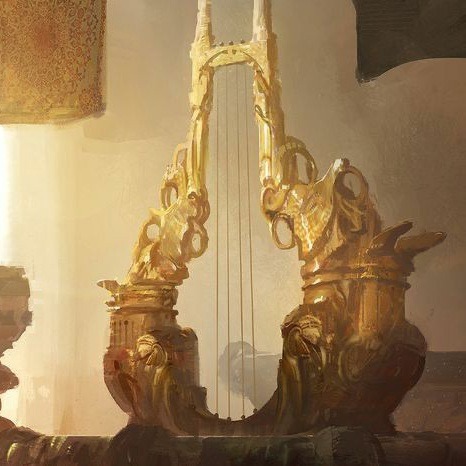
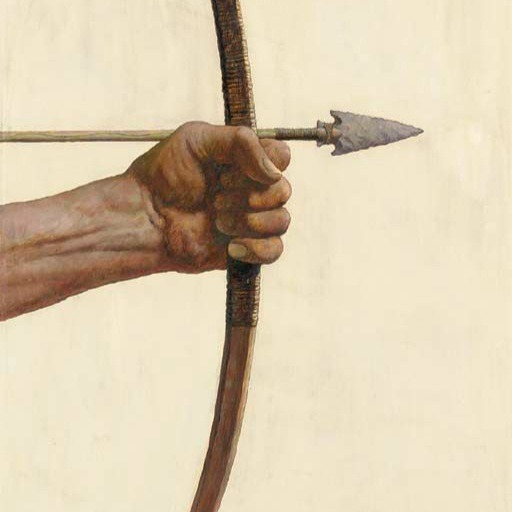

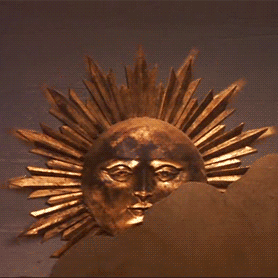


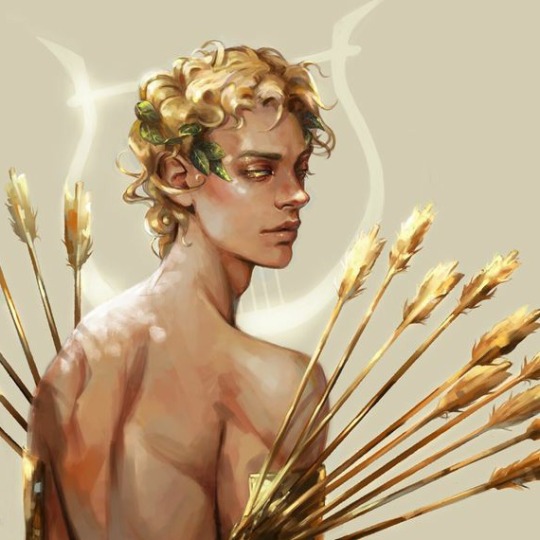


Deity Aesthetic: Apollo
Greek God of prophecy and oracles, light, music,art, poetry, archery, healing, plague and disease, and the protection of the young.
Hellenic Epithets:
Thearios (Of the Oracle)
Proopsios (Foreseeing)
Mousêgetês (Leader of the Muses)
Klêdônes (Omen in Words and Sounds)
Oulios (Of Sound Health)
Paiôn (Healer)
Lykios (Of the Wolves)
Delphinios (Of the Dolphin)
Alexikakos (Averter of Evil, Harm)
Symbolism of Apollo:
The Lyre
Bows
Laurel Tree
Laurel Wreath
The Chariot
Wolves
Dolphins
Ravens
Pythons
Bees
#apollo deity#apollon#apollo worship#apollo#hellenism#hellenic paganism#hellenic polytheism#hellenic revivalism#hellenic pagan#hellenic gods#deity moodboard
1K notes
·
View notes
Text
Working with Apollo

☀️ Associations
Identified with: Sol (Roman), Horus (Egyptian), Freyr (Norse)
God of: The Sun, Prophecy, Oracles, Light, Music, The Arts, Song, Poetry, Healing, Medicine, Plague, Disease, Protection of the youth, Knowledge, Herds
Symbols: Lyre, Laurel Wreath, Silver Bow and Arrows, Tripod
Plants and Trees: Laurel, Larkspur, Cypress, Apple Trees, Palm Trees, Hyacinthus
Animals: Swan, Raven, Tortoise, Serpent, Wolf, Dolphin, Mouse
Stones: Amber, Citrine, Peridot, Sunstone, Sapphire, Carnelian
Incense: Frankincense, Myrrh, Cypress, Clove, Cinnamon, Bay
Colours: Gold, Yellow, Orange, Silver, Blue, White
Tarot: The Sun, The Chariot, Strength, Temperance
Planets: Sun
Day: Sunday and the 7th day of the Lunar month
Regions: Delphi, Delos, Megara, Claros and Didyma in Anatolia
Holiest Shrines: Delphi and Delos (his birthplace)
~~~
☀️ Epithets
Proopsios (Foreseeing)
Phoibos (Bright)
Akestór (Healer)
Alexikakos (Averter of Evil)
Theoxenios (God of Foreigners)
Pythios (Slayer of Python)
Chrysaor (Of Golden Sword)
Daphnephorios (Bearer of Laurels)
Loimios (Deliverer from Plague)
Moiragetes (Leader of Fate)
Pagasaios (Pagasaean)
Hekaergos (Far-shooting)
Kledones (Omen in swords and sounds)
Aegletes (Light of the sun)
Lycios (Of the wolves)
Smintheus (Of the mice)
Boedromios (Rescuer)
~~~
☀️ Relationships
Parents: Zeus and Leto
Sister: Artemis, his older twin sister
Consort: Unmarried
Notable Lovers: Hyakinthos, Daphne, Koronis, Branchus
Divine Children: Asclepius, Aristaeus, Hymen, Ialemus
Hero Children: Orpheus, Troilus, Phemonoe, Eurydice
Attendants: The Muses
~~~
☀️ Myths
Apollo’s cattle were once stolen by Hermes, but upon being discovered, Hermes gave Apollo his lyre in a trade
His sister Artemis helped their mother Leto in giving birth to Apollo
Python was sent by Hera to hunt the pregnant Leto and assault her. To avenge the trouble given to his mother, Apollo went in search of Python and killed it in the sacred cave at Delphi, claiming the region s his own
Apollo spent the winter months among the Hyperboreans. He returned to the world during the beginning of spring
Apollo insulted Eros who shot him with a golden arrow, making him fall in love with the nymph Daphne. Then Eros shot Daphne with a lead arrow, making her completely disgusted with the sun god. When Apollo began pursuing Daphne, she was changed into a Laurel Tree. This became one of Apollo’s sacred symbols.
Hyakinthos was a beautiful Spartan prince and lover of Apollo. However, when Apollo was showing his lover how to throw a discus, the jealous Zephyrus redirected the wind so that it hit Hyakinthos and killed him. Out of grief Apollo changed him into a flower, Hyacinthus
Apollo is said to have been the lover of all nine Muses, and not being able to decide between them, decided to remain unwed
During the Trojan War, Apollo rescued the corpse of Sarpedon, cleaned it and delivered it to Hypnos and Thanatos, who took it to Lycai for funeral honours.
Odysseus came to the Trojan Camp to return Chriseis, the daughter of Apollo’s priest, and brought many offerings for Apollo. Pleased with this, Apollo sent gentle breezes that helped Odysseus return safely to the Greek camp.
Marsyas boasted about his musical talent and challenged Apollo to a musical contest but lost. As punishment for his hubris, Apollo had Marsyas tied to a tree and flayed alive.
Apollo and Artemis slew the seven sons and seven daughters of Niobe as punishment for her arrogant boasts that she was superior in motherhood than Leto.
~~~
☀️ Offerings
Red Wine
Olive Oil
Water
Citrus Fruit (Orange, Grapefruit, Lime, Lemon)
Honey
Almonds
Cinnamon
Coffee
Herbal Tea
Honeycakes
Bay Leaves and Anise
Images of the things he’s associated with
Hand-made things like Drawings, Poetry, Lyrics, Music
Golden Objects
Feathers
First Aid supplies and Bandaids
Divination Tools
Sun Water
Milk
Lamb or Goat Meat
Cheeses (Goat/Sheep cheese?)
Wheat and Breads
Bow and Arrow imagery or items
All musical instruments, especially strings
Orange or Lemon-flavored Chocolate
Laurel Wreaths, Branches or Leaves
Sunflowers or Lily of the Valley
Aloe Vera and Sunscreen
Any art you’ve made
Concert Tickets
Golden Jewelry, especially of the sun or arrows
LGBT+ Flags, especially Bisexual
~~~
☀️ Altar Decorations
Anything Golden
Aloe Vera and Sunscreen
First aid supplies and Band-Aids
Gold, Yellow, Orange, Silver and White Candles
Your med box
Research Journals and Pages, my Book of Shadows, anything that represents Knowledge
Sun and Archery Motifs
A little Statuette or Bust of him
Feathers, especially swan or crow
Charged Sun Water
~~~
☀️ Devotional Acts
Donate to medical charities
Support up-and-coming/indie artists and musicians
Sing to Him
Play musical instruments for Him
Hold dance parties, or dance in general
Make a playlist for Him and listen to it daily
Read poetry to Him
Take care of your mental health and remember to take your medicine, if you have any
Try archery
Try different types of divination, like Osteomancy or Tarot
Try and wake up early and watch the sun rise
Go for a walk and feel the warmth from the sun
Let more sunlight into your home/room
Learn a musical instrument or how to sing
Learn simple medical care, like CPR
Learn about His history, His mother's history, and His sister's history
Learn about His lovers
Attend pride
Support LGBT+ rights
Wear yellow or orange clothing
Wear clothing with sun or arrow motifs
Honor Leto and Artemis
Pray to Him and speak to him often. Things to consider praying for are guidance, healing/good health, inspiration, a prophecy or truth
Sunbathe (with Sunscreen!!!)
Always have bandaids or first aid supplies on you
Listen to ABBA
Have the curtains open to let the sunshine in
Sing!
Compliment people and make others smile
Spend time cooking a good, nutritious breakfast
Explore different music genres
Give money to street musicians
Enjoy some caffeine in the morning
Wear more glitter
Find a perfume that reminds you of him, like a citrus fragrance
Attend a local concert
Get up early to watch the sunrise
Blast the radio and get lost in your favorite music
Use a picture of the sun or of him as your screensaver
Donate blood
Read a poetry book
Spend time with family and those you really love
Visit animal shelter
Be more outgoing and extroverted. He’s got your back!
#apollo worship#apollo deity#apollo devotion#apollo devotee#hellenic devotion#hellenic polythiest#hellenic deities#hellenic polytheistic
46 notes
·
View notes
Photo






Apollo/Απολλων epithets
Hekatos - Shooter from Afar
Klêdônes - Omen in Words and Sounds
Mousêgetês - Leader of the Muses
Oulios - Of Sound Health
Paiêon - Healer
Proopsios - Foreseeing
968 notes
·
View notes
Text
Day 20 of Hellenic Polytheism
Do you have a favourite aspect of Hellenic Polytheism? by @/wisdom-devotee
Epithets galore.
For example. Have worshiped at one point or another the past 14 years:
Hera under the epithets Antheia, Basileia, Mēter, Oikos (modern), Teleia, Gamelia
Zeus under Ktesios, Herkeios, Patér, Teleios, Baselius, Eleutherios, Phyxios
Athena under Ergane, Areia, Alea, Phrónēsis (modern), Paionia
Apollo under Argyieus, Proopsios, Paian
Probably other examples too
18 notes
·
View notes
Text

Diviniation Shrine to Apollo Proopsios March 25, 2024.
Quite a big improvement from the crowded one (link) I set up during this book cases' reorganization. I finally added the purple thing back for Apollo Proopsios's shrine to elevate him.
Divination tools include a lot of 78-tarot decks, oracle cards, lenormand, playing cards, dice sets, pendulums, set of runes, and a scrying ball. All the books, most not shown in photo, are all divination related. (I also have an ouija board but its below this shelf because it fits no where else)
I hope he's happy with his shrine finally being properly set up.
#polytheism#paganism#helpol#hellenic polytheism#divination#lookiehere#izkurereshkigal altars#altar#shrine#apollo#apollo deity
36 notes
·
View notes
Note
Trick or treat? 🎃
Treat 🎃
I pulled out an oracle deck, shuffled, and asked Apollo Proopsios to give me a card that may be helpful to you in this moment. Here was the card from "The Daemon Tarot" Oracle Deck

Text on Card (generated by iOS): "Bufonite, or toad-stone, is a magical stone said to grow within the head of a live toad. The stone, harvested from a creature who was used as an ingredient in many poisons, was said to be a powerful antidote."
Here is its page in the oracle companion book:

Text on page (generated by iOS):
ANNOTATION
Bufonite is another symbol of magic and power (see also Brooms), but this one is far more legendary in nature. Bufonite, or toadstone—first mentioned in mythology around the time of Pliny the Elder—is a magical jewel that was said to grow inside toads, and is a cure to all poisons much like a bezoar found in the brain of a toad. Like bezoar, there is no scientific basis for the belief that bufonite was any sort of antidote, but jewelry was created from gems supposedly harvested from toads to ward against ills.
INSPIRATION
Perhaps there is no scientific basis for the claims that bufonite is an antidote, let alone that it existed at all (many bufonite amulets were, in fact, fossilized fish heads); but as a metaphor, it is still quite powerful. Toads were often described as witches familiars, and their skin was thought to be used in all manner of magical poisons. Yet, from inside the head of those toads, folklore also invented a cure.
DIVINATION
Focus on finding worth and beauty in circumstances or items that others may regard as ugly.
-
Hopefully there's something useful, or at least a bit of fun
🧡Trick or Treat🖤
#polytheism#paganism#tarot#oracle deck#divination#cartomancy#pagan#trick or treat#trick or treat game#trick or treat 2023#ask game#halloween
4 notes
·
View notes
Text
The Mousai. I spend the vast majority of my day listening to music. It is my biggest coping mechanism, I cannot imagine my life without it. My headphones are an accessory I wear around my neck for practicality not fashion. Yet.... I worship no deities of music. Unless we count Apollo but since I worship him under specific epithets (Proopsios, Argyieus, Paian) and never just "Apollo" I'm not counting it.
What gods do you spend little time worshipping when they in fact have a huge sphere of influence over your life?
I love camping and everything about the bush but have barely started building more kharis with Artemis. I live in The Land of drought and bushfires and surf and 85% of the population living by the coast, but my direct worship of Poseidon has been minimal.
#my whacky life#mypractice#actually i can imagine it because it happened and it was utter fucking hell not having music just made the flames hotter#but for real ive spent the majority of my life listening to music#my cd collection was big starting maybe in middle school#because even with mp3 i bought physical copies of it then put them on computer then onto mp3#then eventually iTouch#my entire justification for getting an iPhone as my first smart phone was:#its a music player that just so happens to have a phone attached#my music library is in grave danger due to itunes sucking tho#lets not think about that anxiety inducing situation#also im typing this from my designated music player lol (an ''old'' iphonr with no sim)
101 notes
·
View notes
Text
🧡 Shrines! 🧡
Now that I have reconsecrated idols, consecrated idols, and blessed representations.... which I planned to do in January and it became a year long project apparently.....I can set up my shrines again!
Household Boundries Shrine
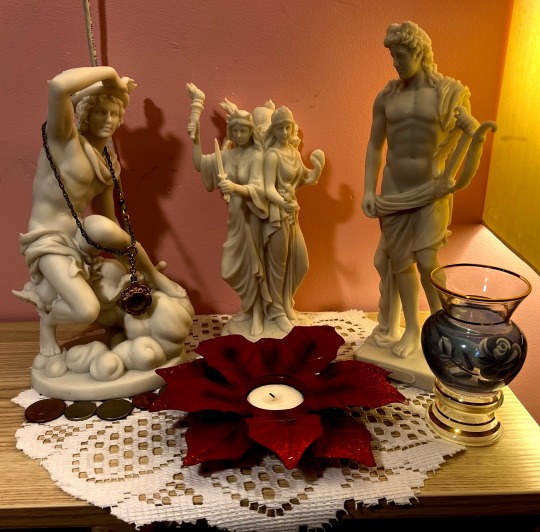
Hermes, Hekate, Apollo Argyieus
This is a super Work In Progress, its a brand new desk so different spacing. I need a better cloth for them so I can make a bit more space. Hermes does have his compass and coins at least. I even have a libation holder but not receiver whoops. Soteria is sometimes honored here without a representation.
Education Shrine?

Ares, Athena Ergane, Ninĝirsu, Geštug Nisaba, Nabû
This is actually kind of an odd shrine to set up for me. Not sure its exact purpose anymore. However, not only do I like having this "set" of Gods together. They seem to want to have their own shrine [Meaning I felt uneasy keeping them on main altar which dissipated when I placed them on their own shrine 🤍]. The vase with Greek art I inherited from my papous. There is a closed compass and LED candle lights.
Divination Shrine
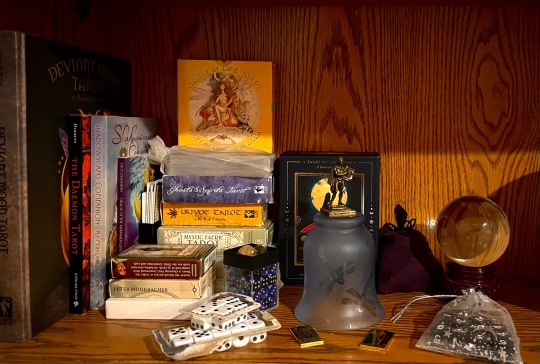
Apollo Proopsios
I actually changed this shrine a little by adding the tarot deck's companion books. No bells and whistles to this shrine—like libation vessels or lightning—just all the tools and his representation on top of the purple platform.
#polytheism#paganism#hellenic polytheism#helpol#mesopotamia#shrine#altar#izkurereshkigal altars#hurray for the random burst of one day of energy i get every 4-6 months#oikos worship
39 notes
·
View notes
Text

October 26, 2022. Ritual to reconsecrate Hellenic Idols & bless representations.
It went well, I chose not to gift any representations as idols and only keep those I currently have. I don't have any energy to maintain idols that haven't already been established. ... This altar with this intent was set up in April 😩 at least I finished it before the new year.
On altar left to right (idols bolded):
Athena Ergane, Ares, Hermes, Hekate, Apollo Argyieus, Apollo Proopsios, Hera Oikos, Hestia, Zeus Herkeios, Zeus Ktesios (empty jar needs to be refilled), Hera Antheia, Epione, Asklepios, Hygeia, Akeso, Iaso, Panakeia, Aigle.
#polytheism#helpol#hellenic polytheism#altar#ritual#Technically speaking Gibil {red candle} & Ningirim {bell} are on this altar but I did not call to them for the ritual#i bet tumblr destroyed the quality of the photo#because for once the quality was nice#gods its so nice when i can do a ritual#or anything really#but i chose to use the energy and break from pain for this
23 notes
·
View notes
Text
I left a comment but I thought I'd expand on this.
This is a well written post but I also think it shows the trouble our various communities have with words.
For example, reconstructionism and revivalism mean different things to different people. For some any polytheist worshipping gods from a "dead religion" fall under the "pagan umbrella" as far as they are concerned....even when those polytheists does not want to be considered pagan. The terms orthopraxy and orthodoxy are often misunderstood. So on. I know when I wrote about recon vs revive I left links to people who explained it differently than I did or outright disagreed with my interpretation.
.🌺.
When it comes to these phrases, I have definitely seen people who "work with" deities seeing themselves as equals to their gods. I've seen at least two people explain they purposely use the phrase "working with" because they see themselves as equal. I've also seen people who don't use the term "working with" but still see themselves as equal to the Gods.
I don't think I've ever seen the distinction between "worshipping" and "working with" be described as the level of connection, or frequency of connection with "worshipping" being more often and "working with" being less often. Which goes to show just how varied the words we use are, because I'm sure many use it that way.
I've seen it used the exact opposite way. A person says they "work with" a particular God because they intensely work with them on specific things in their life every single day such as grades, processing trauma, being a parent etc. They use "work with" because of the high frequency and intensity; whereas the deities they connect with every now and then or for non-specific reasons they call that "worship."
I've also seen people have basically the exact same type of practice of altars, prayers, offerings, i.e what most would call "worship" but don't call it that because of negative experiences with their previous religion (or even trauma) so choose the phrasing "work with." I also suggest for any of those people synonyms such as "pay homage," or "honor," never use words your uncomfortable with.
Yet another variation, I have seen people who only use the term "working with" when it deals with spells, divination, astral travel, or some other spiritual practices rather than mundane activities or basic worship of offerings & prayers.
.🌺.
Its very interesting from a polytheist perspective to see it explained as invoking a connection with certain Gods at certain times that isn't necessarily as frequent as other Gods. If I were to use this terminology in my own practice I'd say I "work with" Apollo Proopsios when I do divination but I "worship" Apollo Paian in general. I also wonder how deities who don't have a place on my altars/shrines would fit into this frame work such as Hypnos, Nusku, Hemera, and An, among others— I just call it all worship. And I most certainly do not interact with all the Gods I worship often, I don't have the energy for it sometimes I go weeks without doing anything.
I don't use "work with" because A.) I have seen it used as terminology to denote equals and thats how I learned it back in my neo-wiccan neo-pagan days especially from real life sources and the correlation stuck B.) It makes little historical sense from my main tradition's viewpoint (Sumerian). I think maybe the way I use "dedicate" lines up with your usage of "work with" or is close. I dedicate specific things such as my education to Athena Ergane and my career to Ares & Ninĝirsu.
I think its important to recognize people who don't have "relationships" in the same way described by many polytheists and pagans. While I did receive permission from Ereškigal to be her devotee that is one of the extremely few Godphones I've had in my 10 years; I can't remember the last time I received any message or sign from her in any way, probably 2017...maybe 2019? I would call my devotion a stronger form of worship not an "intense relationship" because.... I don't have relationships with my Gods. There are people who can never feel the Gods so even the idea of permission is negated. I talk about it here as well as here
Also what @jamy-libations said in comments: devotion does not require an oath, especially in most reconstructed polytheist practices. I've seen many make the distinction by saying "Apollo devotee" vs "Oath bound Apollo devotee" or something along those lines.
.🌺.
Personally I don't think these words can be used incorrectly. They are too highly individualized.
I'm sure I use to scrunch my nose as "work with" due to my experience as it being equals until I learned that not everyone sees it that way. I think we should stop scolding each other's practices and language in our community tbf. We can be judgmental in our heads and just keep it to ourselves.
I'd love to hear other people opinions too because I'm sure there are usages that I don't know about or more personalized views.
[Sorry for misspellings, wrong words, or bad grammar I have dyslexia and its 1:23am I aint proof reading.]
Important Distinction Between 'Devoted To', 'Worshipping', and 'Working With' Concerning Connections with Deities🕯
I feel like there's a huge misunderstanding surrounding the use of the terms 'devoted', 'worship', and 'working with' in Hellenist, pagan, and polytheist communities. So many times I see people using terms incorrectly or even scolding others for saying they 'work with' certain deities, so I think it's time we clear the air here.
Honestly though, I don't blame anyone for misusing terms like these as they are somewhat obscure even in these communities.
It comes down to the fact that there are three different categories of relationships you can have with your deities, these being guidelines. Now, this concept is more of a pagan concept than a polytheist concept, and I'm not sure how present it is in Hellenism specifically. But, there's a definite difference between polytheism and paganism in this regard.
This is one of the main reasons I most often refer to myself as a Hellenic Pagan when talking about my religion. Sometimes I'll say Hellenist, but not polytheist.
Quick simplified explanation: polytheism is the belief in multiple gods, whereas paganism is more about connection with energies, divine or not. There are polytheistic, monotheistic, and atheistic pagans. Hence, witchcraft and paganism overlap more than witchcraft and polytheism do.
Now back to my original point. Because of this slight difference in approach and values between paganism and polytheism, the idea of having these three categories of relationships with deities will likely appeal more to pagans than polytheists (that's not to say this can't apply to polytheists as well, or that it applies to all pagans).
Now a simple breakdown of each term.
'Worship': To worship a deity is, for the sake of the explanation, like the standard issue package. You make offerings, you connect with them, they bring their influence into your life in one way or another, etc.
You frequently interact with the deities you worship.
You don't necessarily need a deity's consent to worship them, though it depends on the deity and situation. Personally, I have found that you, for the most part, don't need given permission.
I personally worship Dionysus and Ares.
'Devoted to': A devotee is, you could say, like the next level up from a worshipper. It doesn't mean one is better than the other. It is simply a different relationship. You and your deity must know each other very well, which is why it is generally not recommended for beginner practitioners to become devotees right off the bat. In most if not all cases, including my own, you must ask and receive consent from the deity you wish to be devoted to, and it is generally oath bound.
For me, oath bound didn't mean anything elaborate or ritual-ly. I swore a simple promise to Apollo, and he swore one to me. He and I have been connected since day one, and I think even before I became a Hellenist. Devotion implies an intense relationship and a deeper connection between you and your deity. I won't go into detail, but it's an interesting topic to read up on should the fancy strike you.
'Working with': This is a term that receives a lot of backlash, simply because it is misunderstood. The problem a lot of people seem to have with the term, is the fact that it sounds like the mortal involved is holding the deity at the same level as themselves. This is very false.
Working with a deity is a beautiful practice that involves you connecting with them and their divinity to bring the values they hold into your life. It is the method you turn to when worshipping this particular deity frequently just doesn't work for you, but you really don't want to lose your relationship with them. It means that you invoke a connection with them at certain times. It is not always a frequent thing like worship, although it can be.
Personally, this was the case for me when I started connecting with the Dioscuri (Castor and Pollux). The values they hold and embody are important to me, personally and professionally. I turned to them because I felt drawn to them, but when I tried to start worshipping them, everything just stopped. Nothing worked and all connection got inadvertently cut off. I was gutted for a while, knowing that I must have approached them in a way they didn't want me to. Then, I started working with them, changing the dynamic of our relationship to one that actually works perfectly for us.
Personally as an athlete, I usually connect with Castor and Pollux before a competitive fight. I invoke a connection with them when I feel that I need them. It does not mean that I take without giving back; I give offerings and I am even working on a small altar dedicated to them. I simply don't connect with them as often as I do with the deities I worship. That's all it is. It is a wonderfully liberating practice if it happens to be right for you.
I know this was a long post. I just feel that this is such an important distinction to make. Thank you so much for reading. Have a blessed day ☀
Also please tell me if I got anything wrong, and I'll correct it.
221 notes
·
View notes
Text
🏺Gods & Spirits🏺
That I worship in my practices.
Sumerian names in posts are spelled using the ETCSL's proper noun list or Handbook of Gods and Goddess of the Ancient Near East by Stuckey. Sumerian God/Gods: Diĝir / Diĝirene (also Diĝir-diĝir)
Hellenic names I try to use Greek transliterations spelling rather than Latin-derived forms for example Asklepios not Asclepius. Hellenic God/Gods: Theos / Theoi
Shinto: Kami is both singular and plural
Epithets translations are in brackets [ ]
Two practices: Hellenic & Sumerian Polytheist Revivalism; Shinto.
"Sustained Worship" are those that have a place on my daily altar or consistent shrines. However, due to sickness I cannot always have an altar or shrine so I needed a new word for it. The "important mentions" are important ones that don't necessarily receive sustained worship.
This list fluctuates over time.
⚫️ 'Devoted To'
"Devotee" is a convenient word but I recognize its rather vague. Those I am devoted to get more 'attention'. I turn to them first in various situations. I feel they impact my life more. In a sense there are more expectations of me as a worshipper than if I wasn't a devotee. While it is a vague word, its still an important distinction for me.
🔷 Ereškigal
My personal God (Diĝirĝu) in Sumerian tradition.
I often refer to her as My Queen. In Sumerian it is Ninĝu Ereškigal'am, 𒎏𒈬𒀭𒊩𒌆𒆠𒃲𒀀𒀭 I add an apostrophe before -am since its a suffix and I want to make that clear.
Ninazu her son, currently worshiped due to their relationship
Gugal-ana her husband worshipped due to their relationship and upg.
🔷Amaterasu-Ōmikami
My central Kami in Shinto practice.
She is the front/center of all other Ofuda within the miyagata; due to personal meaning not because it is the Jingū Taima.
If I am not worshipping in Shinto setting I may also worship just "The Sun."
If I am worshipping a solar God who has multiple roles such as Utu, sun and justice, I deliberately do not worship the Sun aspect.
🟣 Diĝirene & Theoi
These are Gods I give sustained worship to, including the household & health deities. They are consistently on my "Daily Altars" or regular shrines. Worshipping Gods on my altars or shrines only requires a identifiable reasons. No interpersonal relationship required.
Athena Erganê [Worker] — I have dedicated every part of my education to Athena since high school. I also fully believe she has been with me my whole life and witnessed my birth. I believe she has been there for me and guided me for a very long time.
Ares
Apollo Proopsios [Foreseeing] in relation to my divination practice
Nanaya
Enlil
Ninlil
Ninĝirsu
Enki
Inana
Dumuzid
Ĝeštinana
Ningirim
Gibil
Gunida Nisaba [Hulled Grain]
Geštug Nisaba [Wisdom]
Nanna
Nirah — Purification. Temple protection at Enlil's E-kur which was among the most important Sumerian temples; thus he represents altar and ritual protection to me.
🟣 Household Gods
Hestia
Zeus Ktesios [of the House]
Zeus Herkeios [of the Fence]
Apollo Agyieus [of the Street]
Hekate
Hermes
Hera Oikos [of Household]
🟣 Health Gods
Ninisina Gula [Great]
Damu
Nanše - Inspired by Hymn To Nanše Lines 20-31
Asklepios
The Asklepiades:
Epione
Hygeia
Akeso
Iaso
Panakeia
Aigle
🟣 Important Mentions
The following deities generally do not have a spot on my full daily altar or consistent shrines. But they still deserve a mention, due to importance I place on them and/or how often I invoke them:
An — Sky & Heaven and most supreme in Sumerian pantheon. His cuneiform is "Diĝir" 𒀭 the divine marker for deity names. One of my devotional necklaces to represent me as a Sumerian polytheist is a pendant with that sign.
Uraš & Gaia — The Earth
Rheia — as Mêtêr Theon (Mother of The Gods)
Namma — as Amadiĝirdiĝira (Mother of The Gods)
Zeus as: Patér [father], Basileus [king]
Hera as: Mēter [mother], Basíleia [queen], Antheia [of Flowers]
Athena Phrónēsis [Practical Wisdom]
Hypnos
Mamud
⛩Shinto Kami
Kami is not a direct translation to "god/deity," it is much more complex and ambiguous. They are worshiped on a Kamidana. Full info
Central:
Amaterasu-Ōmikami 天照大御神
Ujigami:
Sarutahiko-no-Ōkami 猿田彦大神
Kunitama-no-Kami 国魂の神
Ukanomitama-no-Kami 宇迦之御魂神 (a principal Inari-Ōkami 稲荷大神)
Sūkeisha of:
Ame-No-Uzume-No-Mikoto 天鈿女命
Futodama-no-Mikoto 布刀玉命
Ame-no-Koyane-no-Mikoto 天児屋命
◼️ Misc
Guabancex, Gautauba, Coatriskie— (Taino Zemis) — It is silent, important, and fearful recognition of their power not an active honor/worship. They have no sacred space or worship.
36 notes
·
View notes
Text
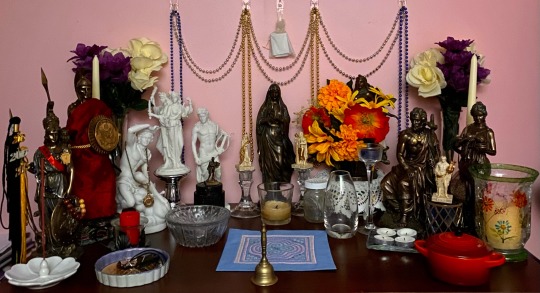
April 26th, 2022. Altar to Bless Hellenic Idols & Representations
"My stuff including idols, statues, and other items have all been packed away for awhile. I haven't liked most of my altars and shrines recently so I thought I'd cleanse all the representations & idols of the Gods. I'll have one altar for Sumerian and one for Hellenic." Explanation from previous altar post which was for the Sumerian Gods.
This is for the Hellenic Gods. Athena Ergane, Ares, Hestia, Hera Antheia, Askelpios, and Hygeia are all idols. I'm probably going to keep it that way and not consecrate any more, the rest will be blessed and offered as representations.
Left to right-ish is: Athena Ergane, Ares, Hermes, Hekate, Apollo Argyieus, Apollo Proopsios, Hera Oikos, Hestia, Zeus Herkeios, Zeus Ktesios*, Hera Antheia, Epione (blue candle), Asklepios, Akeso, Iaso, Panakeia, Aigle (4 white candles), Apollo Paian, Hygeia.
I really wanted Rhea here too, however I don't have a printer for the artwork I want so that'll be later on sometime.
#hellenic polytheism#paganism#helpol#altar#shrine#ofthetheoi#izkurereshkigal altars#i cannot fucking believe i was able to make an altar#i mean my back is now killing me but still im very happy#the altar feels so meh but that's exactly why I'm reblessing all my idols and reps#because i think thats why it feels meh#these gods are then split to four different altars/shrines#hence the 3 different apollo epithets#making altars is definitely much easier than writing prayers#physically more difficult but it comes so naturally that it doesn't take as much energy#if that makes any sense at all
11 notes
·
View notes
Text
Gods and Their Epithets - Apollo
Continuing with the series, today we will talk a little about the Lord of the silver bow - Apollo, son of Zeus, whose domains are as varied as himself and sometimes border on the contradictory and incomprehensible.
The cult of Apollo was widely established in Ancient Greece. It covered extremely varied scopes, after all, Apollo is, among other things, god of oracles, music and poetry, plagues and healing, purifier and protection against evil, and a protector of the youth.
The Homeric Hymn to Apollo establishes Him as lord of the bow and lyre, as well as the messenger of the will of Zeus.
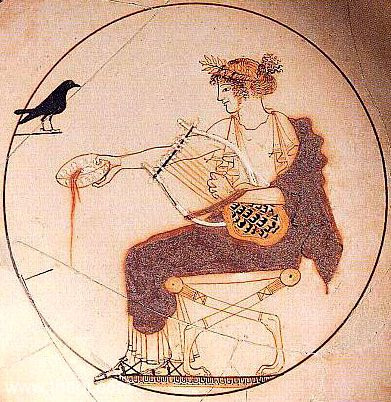
Let's dive into some epithets, shall we?
ART
Mousagetes (Μουσηγετης) - Leader of the Muses. This epithet characterizes Apollo as the God of the arts of the Muses, which include music, dance, and various types of poetry.
HEALING/DISEASE/PURIFICATION
Paean (Παιαν) - One who heals/healer. Epithet present in Homer's works, it refers to a deity separate from Apollo, however, the name came to apply to the god. Paean is also the name of a poetic form designated in hymns to the god, as well to His son, Asklepios.
Sminthaios - God of mice. Epithet present in Homer in the imprecation (an invocation asking for an attack action) of the priest Criseis. It is supposed to be related either to his functions as God of the plague or to the region of Anatolia, where he was worshiped under that epithet.
Akesios/Akestor/Alexikakos - One that wards evil off. The alexikakos epithet was used in Athens in reference to the God's success in warding off a plague. It is of evident apotropaic character, much like Akesios and Akestor.
PROPHECY & ORACULAR ACTIVITY
Moiragetes (Μοιραγετης) - Leader of the Fates. Epithet used collectively for Apollo and Zeus at Delphi. The connection of both deities in the oracular aspect is understood here, since Apollo, as an oracle, derives his prophecies ultimately from Zeus.
Proopsios (Προοπσιος) - the one who foresees. Indicative of Apollon's oracular powers.
Pythios (Πυθιος) - the one who kills the Python, or, of Pytho (alternative name for Delphi). Epithet that qualifies the Delphic Apollo.
Loxias (Λοξίας) - the oblique (poetic usage). It presumably refers to the Delphic prophecies, famous for their ambiguity and difficult understanding.
MISCELLANOUS
Karneios (Καρνειος) - cult epithet in various parts of Greece, especially Sparta. The origins of this epithet are conflicting: Some claim to come from a favorite seer of the god named Carnus (Karnos), whose murder provoked his wrath and the sending of a pestilence in the region. Another possible origin attests to the origin of a demigod, son of Zeus and Europa, that Leto and Apollo had helped to bring up.
Phoibos (Φοῖβος) - the Bright one, the Pure. Often used as a synonym for Apollo, replacing his name in literary works and hymns. The name in portuguese becomes Febo and in english Phoebus.
Dionysodotes (Διονυσοδοτης) - one who gifts Dionysus. An interesting epithet to break modern (well, Nietzschean) notions of the opposition between Apollo and Dionysus.
Apollo ranks among one of the most popular and widely worshiped Gods since ancient times. Myths of Him are abundant, from his unrequited love on Daphne, His favour of the Trojan side during the Iliad, or the story of his clash with the drakon Python for dominance of Delphi.
May the God of the arts, light, music, healing and plagues continues to bless us with his endless gifts to this day. May we continue to honour him by seeking his wisdom so well attested by the eons.
I close the post with the Homeric Hymn 21 to Apollo sung by our own @matriarca-inodora
youtube
Os Deuses e Seus Epítetos - Apolo
Seguindo com a série, hoje falaremos um pouco do senhor do arco argênteo, Apolo, filho de Zeus, cujos domínios são tão variados quanto ele mesmo e por vezes beiram no contraditório e incompreensível.
O culto a Apolo era amplamente estabelecido na Grécia Antiga. Abarcava âmbitos extremamente variados, afinal, Apolo é, dentre outras coisas, deus dos oráculos, da música e da poesia, das pragas e da cura, purificador e afastador do mal, e protetor dos jovens.
O Hino Homérico a Apolo estabelece-o como senhor do arco e da lira, além do mensageiro da vontade de Zeus.
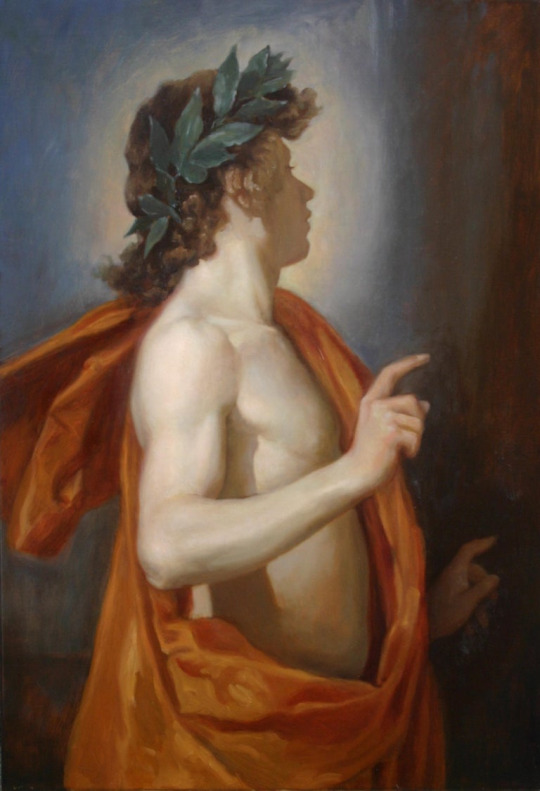
Epítetos relacionados a arte
Mousagetes (Μουσηγετης) - líder das Musas. Caracteriza Apolo como deus das artes das musas, o que inclui música, dança, e diversos tipos de poesia.
Epítetos relacionados a cura/doença/purificação
Paean (Παιαν) - aquele que cura. Em Homero, refere-se a uma divindade separada de Apolo, entretanto, o nome passou a se aplicar ao deus. Peã é também o nome de uma forma poética designada em hinos ao deus.
Sminthaios - deus dos ratos. Epíteto presente em Homero na imprecação (invocação pedindo por uma ação de ataque) do sacerdote Crise. Supõe-se ter relação ou com suas funções como deus da praga ou com a região da Anatólia, onde era cultuado sob esse epíteto.
Akesios/Akestor/Alexikakos - aquele que espanta o mal. Esse epíteto era usado em Atenas em referência ao sucesso do deus em espantar uma praga. É de evidente caráter apotropaico.
Epítetos relacionados à atividade oracular
Moiragetes (Μοιραγετης) - líder das Moiras. Epíteto utilizado coletivamente para Apolo e Zeus em Delfos. Entende-se aqui a conexão de ambas as deidades no quesito oracular, visto que Apolo, como oráculo, deriva suas profecias, em última instância, de Zeus.
Proopsios (Προοπσιος) - aquele que vê de antemão.
Pythios (Πυθιος) - o que mata a Píton, ou, de Pytho (nome alternativo para Delfos). Epíteto que qualifica o Apolo Délfico.
Loxias (Λοξίας) - o oblíquo (uso poético). Refere-se presumivelmente às profecias délficas, famosas por sua ambiguidade e difícil compreensão.
Miscelânea
Karneios (Καρνειος) - epíteto de culto em várias partes da Grécia, especialmente em Esparta. As origens deste epíteto são conflitantes: Alguns afirmam vir de um vidente favorito do deus, chamado Carnus (Karnos), cujo assassinato provocou sua ira e o envio de uma peste na região. Outra possível origem atesta a origem de um semideus, filho de Zeus e Europa, que Leto e Apolo haviam ajudado a criar.
Phoibos (Φοῖβος) - o brilhante, o puro. Muitas vezes utilizado como sinônimo para Apolo, substituindo seu nome em obras literárias e hinos. É aportuguesado como Febo.
Dionysodotes (Διονυσοδοτης) - aquele que presenteia com Dioniso. Um epíteto interessante para quebrar noções modernas (bem dizer, nietzscheanos) da oposição entre Apolo e Dioniso.
Apolo figura entre um dos Deuses mais populares e amplamente cultuados desde os tempos antigos. Seus mitos são inúmeros, desde sua paixão não-correspondida com Dafne, seu favor ao lado troiano durante a Ilíada ou a história de seu confronto com o drakon Píton pelo domínio de Delfos.
O Deus das artes, luz, música, cura e pragas continua a nos abençoar com seus dotes infindos até hoje. Que continuemos a honrá-lo buscando sua sabedoria tão bem atestada por éons.
Encerro o post com o Hino Homérico 21 a Apolo entoado por @matriarca-inodora
youtube
#apollo#apollon#hermeneutas#pt-br#politeísmo helênico#helpol#hellenic polytheism#apollo devotee#hellenism#hellenismos#epithets#epítetos#Youtube
160 notes
·
View notes